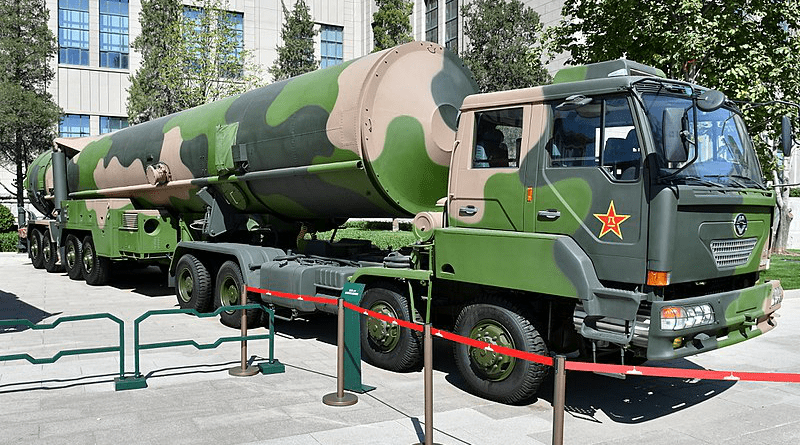US Officials Warn Of New ‘Axis Of Evil’ With China At The Fore
By VOA
By Jeff Seldin
U.S. military and defense officials are increasingly concerned that as China and Russia forge ever stronger ties, they might attempt to challenge Western unity and eventually alter the balance of power on the world stage.
The commander of U.S. forces in the Indo-Pacific told lawmakers on the House Armed Services Committee that the evolving relationship between Beijing and Moscow is a “big portion” of what is making the current environment “the most dangerous I’ve seen in 40 years in uniform.”
“Cooperation from those two authoritarian nations puts us in a different security environment,” Admiral John Aquilino said during a hearing Wednesday in Washington.
“My sense is this is a way to combat the broadened United States alliances [and] partnerships with our like-minded allies and partners around the region,” he said. “This is their counter.”
And with signs of expanded cooperation with North Korea and Iran, as both countries have sought to supply Russia with weapons for its war in Ukraine, “it should be concerning to the whole globe,” Aquilino added.
Pentagon officials have long sought to portray China and Russia as distinct, characterizing Beijing’s growing military capabilities and its willingness to use them as a challenge, while portraying Russia and its actions as more of a threat.
Aquilino, however, described the relationship between China, Russia, North Korea and Iran as a nascent “axis of evil.”
“We ought to act accordingly,” he said.
Ely Ratner, the Defense Department’s assistant secretary for Indo-Pacific security affairs, echoed the view that developments in Europe and the Indo-Pacific are increasingly connected.
“It is really important to underscore the degree to which standing with Ukraine will help strengthen deterrence in the Indo-Pacific,” he told lawmakers. “It will demonstrate that there are costs and consequences for this kind of violence, and that the free world will come together.”
The assessments from Ratner and Aquilino follow similar warnings from top U.S. intelligence officials that Russia’s war in Ukraine, while not yet successful in accomplishing all of Moscow’s goals, has served to embolden China’s leadership.
Director of National Intelligence Avril Haines told lawmakers earlier this month that Beijing has managed to get long-sought concessions from Moscow in exchange for support for its war in Ukraine.
And CIA Director William Burns said Russian success in Ukraine could “stoke the ambitions of the Chinese leadership in contingencies ranging from Taiwan to the South China Sea.”
Aquilino said those concerns are playing out as China’s military has been “increasingly aggressive and emboldened,” with Beijing’s focus trained, as always, on Taiwan.
“China would absolutely like to assimilate Taiwan without a war,” he said. “That is evident by their increasingly aggressive coercive campaign against Taiwan, increasingly deploying ships in the vicinity, crossing the center line with their air asset. …They’re taking all actions to attempt to get the Taiwanese to capitulate.”
Aquilino warned that Chinese military aggression is also raising the risk of conflict in and around the Philippines.
“It’s a really critical hot spot that could end up in a bad place,” he said. “The fact that they [the Chinese military] are now fire hosing and ramming Philippine ships attempting to support Philippine sailors. … I’m concerned where it can go.”
VOA has reached out to Chinese officials for a response. In the past, China has responded to such allegations by accusing the U.S. of “hyping up” the threat.
Military officials on Wednesday also voiced concern that the evolving alliance of China, Russia, North Korea and Iran has appeared to embolden North Korean leader Kim Jung Un.
“I am convinced that the DPRK is not only reacting to our activities, but in many ways mirroring them,” said General Paul LaCamera, commander of U.S. Forces-Korea.
Kim “has an opportunity with the Russians right now to have some of his technology tested on the battlefield,” LaCamera said. “Not just his missile technology, but his artillery and others.”

